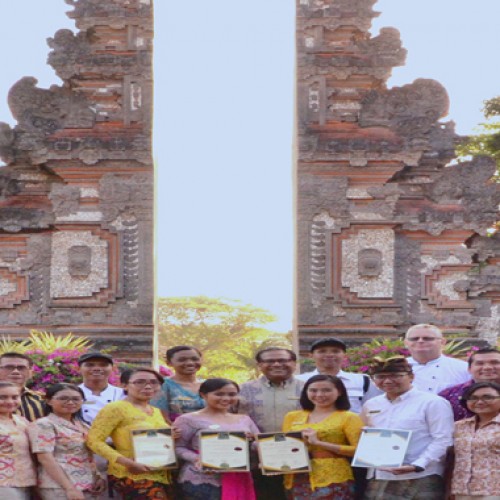COVID-19: Emerging mental health crisis can’t be ignored
Mental health issues like anxiety, stress, depression are increasing due to worries and problems related to the coronavirus pandemic.
By Prem Kumar
Anxiety, stress, depression have become a common phenomenon in our life thanks to different kinds of pressures that we go through and our pressing lifestyle. But then during the normal times, you have many options to soothe your frayed nerves, unwind, and or simply divert. Also, the anxiety of normal day-to-day life is not that much distressful.
But this is a different time. The deadly coronavirus has not only created a global health crisis but also taken a heavy toll on our daily life. We are going through a very tiring and stressful time that is affecting our mental health. The Coronavirus outbreak has brought most parts of the world including India under lockdown. People are forced to live in isolation. Due to the mandated work from home arrangement, many of us are feeling demotivated, stuck as we are inside our home. Most of us are not used to work from home; neither work-from-home; moreover, there is no outdoor movement.
We are anxious not only of our physical health, but also our financial health, professional life. We all are staring at the uncertain, bleak future. Coronavirus pandemic, along with causing global health catastrophe, has also precipitated an economic crisis. Unemployment, social insecurity is at their zenith owing to preventive measures such as lockdown taken to contain virus spread.
Construction, manufacturing, aviation, travel and tourism, hospitality and leisure are among the worst affected sectors, which employ a huge number of people, most of them have been rendered unemployed, at least temporarily.
Forced to live indoor, people are getting bored and anxious as they can’t go for any outdoor leisure activities or meet people outside the home. Social distancing has become standard practice. Clubs, theatres, public parks, tourist spots, eating joints all have been shut down. Due to lockdown, people are deprived of social engagement and face to face meetings. Visiting family and friends is neither desirable nor possible. Those staying far away from their family or parents can experience more anxiety. Unable to go to schools and playgrounds, children are more vulnerable to anxiety.
Certain parts of the country are under the more stringent quarantine measures than the rest, which is very agonising for people staying in those parts. Professionals are confined at home, many of them without works, as everyone can’t work from home. Even with all precautions, people are afraid of getting infected with the virus, minor symptoms of cough and fever create panic.
Visiting hospitals during the lockdown and in the cognitive atmosphere is very difficult and agonising. Think of the mental plight of people such as senior citizens, pregnant women, or anyone who are required to visit hospitals on regular basis, or those such as doctors, health workers and other frontline workers who are at the forefront of the fight against the coronavirus. Learning news of the increasing number of people getting infected with the virus and the increasing number of people dying is depressive. Excessive dissemination of information and misinformation through different media channels are not much helpful. All these are making extremely difficult for us to stay calm and positive during this time and causing anxiety, despondency and depression. The varying and uncertain incubation time of the virus is also causing stress and anxiety.
Apart from the physical health crisis, the COVID-19 pandemic has also brought mental health crisis that may linger for a long time to come. The World Health Organization (WHO) has already warned that COVID-19 pandemic and subsequent restrictive measures undertaken to contain the pandemic can adversely affect people’s mental health and well-being. The overall situation is quite stressful and depressing. This heightened anxiousness is bound to affect our overall well-being.
A recent paper published by the US government’s Centres for Disease Control and Prevention says that global COVI-19 pandemic has resulted in ‘a heightened public mental health crisis.’ A recent survey by Ipsos-MORI says that the two-thirds (62%) of Britons are struggling to stay positive about the future in the face of the pandemic.
Governments must recognise the urgency to provide mental health aid to people during this crisis, but the problem with countries like India is that mental health has hardly been a priority for our policymakers. Although now people in increasing number are talking about their mental health, it is still to become mainstream public issues.
Besides creating awareness about mental health, the governments should set up online consultation and counselling facilities for those in need of mental health care, through video calls, live sessions and other means, during this pandemic. Recovered patients also need psychological counselling.
Prolonged anxiety has the potential to evolve in some serious health issue like depression and can also affect our overall well-being. Mental health care is also important as the mental health issue has a direct link with domestics’ violence.
Simple ways to reduce anxiety during the lockdown:
- Attitude is the key: stay positive
- Do breathing exercises: Pranayam, deep breathing (Breathing exercises have other benefits.)
- Practice yoga, meditation and mindfulness (Yoga is also good for overall well-being)
- Stay active and engaged.
- Take frequent breaks while working from home.
- Pursue hobbies you have always wanted to.
- Staying connected is important: keep talking to your near and dear ones.
- Listen to your favourite songs.
- Watch movies; read books.
- Finally, if all these are not helpful, speak to specialists.
You might also like
Emirates introduces new range of toys on board bringing back customer favourites
Emirates has introduced new toys from the Emirates Fly with Me collection and Lonely Planet Kids activity kit bags for children travelling in all classes. The new range of toys
Awards Galore for Nusa Dua Beach Hotel & Spa at The 7th Asian Lifestyle Tourism Awards 2017
Nusa Dua Beach Hotel & Spa has been recognized as the “Outstanding Beach Resort Destination in Asia”, “Best Spa Resort Destination in Indonesia” and “Best Wedding Destination in Indonesia” at
Emirates to fly to Toronto five times a week starting August 18
Emirates has announced that it will introduce two additional flights to its Toronto (YYZ) service, complementing its existing schedule and providing even more choice and convenience to travellers. The additional







